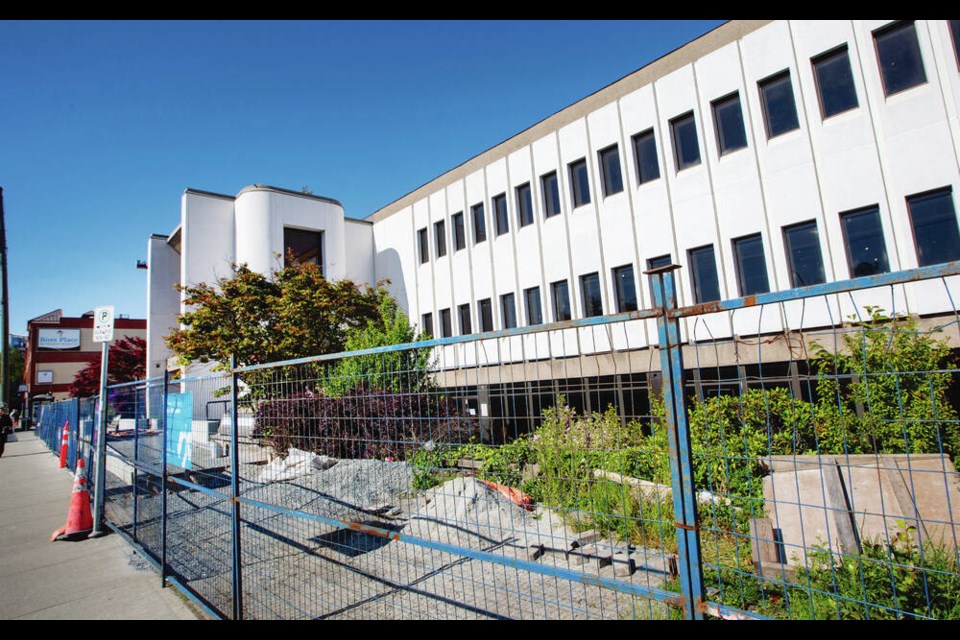The developer behind the re-imagining of what was the Times Colonist building says the city’s approval of variances allowing a brewery, distillery, pub and commissary kitchen will inject new life into the site.
David Fullbrook, chief executive of Merchant House Capital, said it has now formalized a series of uses for the project that will generate some excitement about the $26.6-million Victoria Press Building project.
“We always imagined this would have some food and some excitement,” said Fullbrook, after Thursday evening’s public hearing which gave him the green light.
Fullbrook said with the zoning now settled, making a deal to bring in a brewer, distiller and publican will be much easier.
He is particularly fired up about the prospect of Vancouver-based Coho Commissary establishing a 20,000 square foot commercial kitchen in the building. That company rents out kitchen space to food businesses that are getting started and expanding as well as providing expertise and guidance.
“That will bring just extraordinary life to the building and the area as well, while bringing an entrepreneurial spirit to the restaurant industry in Victoria,” said Fullbrook.
Thursday’s public hearing unearthed no opposition to the project’s request to allow brewing and distilling, or even the reduction of parking to 122 from the existing 214 stalls on site. Council voted to approve unanimously.
However, Coun. Stephen Andrew said he was only “reluctantly supportive” and asked, before voting for the project to proceed, if more could be done to accommodate those with accessibility issues.
Andrew suggested that because the developer asked for a reduction in the amount of required parking that it was fair for council to ask the developer to consider accessibility in the building design.
“I think there’s a complete lack of sensitivity to accessibility, a complete lack of understanding of accessibility,” he said. “Even though it’s a building built in the 1970s, this is a renovation and refurbishment that the applicant is doing in 2022, where the world has changed.”
Mayor Lisa Helps suggested asking the developer for things not covered by policy at the last minute in a public hearing is poor governance and flies in the face of transparency.
Fullbrook agreed, noting projects in Victoria already go through a laborious and expensive process and tacking on requests at the final stage of the process undermines the work of city staff who work with developers to negotiate terms of new projects.
“We show up at city council and councillors, at the very last moment, look to extract further benefits from the development, that makes for a very challenging development process,” he said. “We can’t just pivot in a public hearing. We can’t just pivot and make a fundamental design change that has financial implications because a particular councillor has a particular passion.”
Fullbrook said the project has substantially improved accessibility, with the removal of several staircases, the addition of several ramps, and automated electronic doors.
The project got enthusiastic support from the mayor.
“I think this building and the community that’s going to be created inside of it really continues to bring Victoria 3.0 to life,” said Helps. “Which is a vision for the next 20 years of the city’s economy that is forward looking, that creates opportunities for low-carbon prosperity that creates opportunity for the community to gather, and that creates high-quality, high-value jobs in this part of town.”
Coun. Jeremy Loveday said it is an exciting and welcome investment in that area. “I’m impressed with the vision of turning a building from one use into another use, in a thoughtful and creative way, while maintaining the heritage,” he said.
Fullbrook said construction will be finished this summer and tenant possession will occur simultaneously. He said the building is about 75 per cent leased out. He expects tenant improvements will vary but many will be open for business before the end of the year.
Merchant House Capital purchased the 130,000 square foot building, at 2621 Douglas St. in 2017. The original building’s construction was completed in 1972.



